Mangaluru, Jul 7: Describing Congress as a ‘movement’ which aims to establish a secular and peaceful society, Chief Minister Siddaramaiah on Friday accused the Bharatiya Janata Party of attempting to divide the society on communal lines and take political advantage in the coming polls.
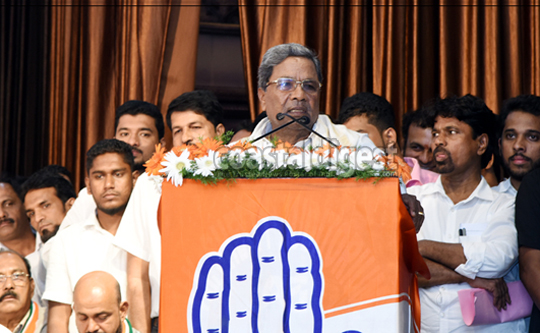
Addressing a zonal convention of Congress workers from Dakshina Kannada, Udupi and Kodagu districts at Adyar Gardens, near here, he said that the party activists should shoulder the responsibility of reaching out to the people and making them aware of how the Congress is trying to maintain peace while the Sangh Parivar is trying to create communal disturbances in the region.
The Chief Minister said that Congress has always been corruption free and haven’t been involved in scams, unlike the BJP, whose first chief minister in Karnataka, BS Yeddyurappa, ended up in jail. “BJP, be it in the state or the center, only knows how to propagate and speak in public. They haven’t done anything for the welfare of the people. But my government has fulfilled more than 150 of the 165 pre-poll promises, and hope to complete everything by next year,” he said.
BJP is not for development, and when they could not find anything against us, they are trying to create communal tensions here, he alleged. “This is not Uttar Pradesh to use religion to create hatred. People of Karnataka are smarter than that and won’t let communalism take over,” he said.
He added that the ones who suffer during communal clashes are the innocent members of the backward communities for no fault of theirs. “If congress wins in next assembly polls in the state, we will definitely make it to the center in 2019. Only Rahul Gandhi becoming the Prime Minister can save the country as Congress is capable of keeping the diverse nation united,” he said.
President of Karnataka Pradesh Congress Committee G Parameshwara said that the 2013 Ullal to Udupi Paadayatra by Congress to promote peace showed its results when 7 out of 8 assembly seats in the coastal district were secured by the party in the last elections. “The power of Congress is its secularism. Shame on the part of everyone who is opposing the Iftar the Pejavar seer hosted,” he said.
He challenged the BJP to point out corruption and scams in the Congress governance. “All Modi does is talk. Where are the 6 crore jobs he was supposed to generate and where are the Rs 15 lakh that was supposed to get deposited in each common man’s account?” he asked. He further said that the aim of the upcoming election is to ensure a BJP free Dakshina Kannada.
General Secretary of All India Congress Committee K C Venugopal said that Dakshina Kannada was a place where cultures interacted in harmony, but recently disturbance was caused by communal hate-mongers.
He accused the BJP of stealing the ideas of Congress and passing them as their own, like Aadhar, FDI and GST. He further said that the Modi-led BJP government was being undemocratic by taking up steps like demonetization without consulting anyone. “Modi’s government is failing due to its anti-people policies. So their only way out is to try to polarize people in the name of religion. But the Congress always believes in unity,” he said.
Minister for energy D K Shivakumar said that 14th Pravasi Bhartiya Divas held in Bengaluru attracted investors to Karnataka because of the presence of a stable government in the state. “We are ready to prepare a list of all the work we have done in the last 4 years. Let BJP also make a list of its achievement. Then the people themselves can decide what they want,” he said, quoting the various schemes initiated by the state government.
Veerappa Moily, S R Patil, Dinesh Gundurao, Ramanath Rai, U T Khader, Pramod Madhwaraj, MLAs and MLCs of Kodagu, Dakshina Kannada and Udupi, block presidents, party activists of all the three districts and representatives of the district Congress Kisan Unit were also present in the program.
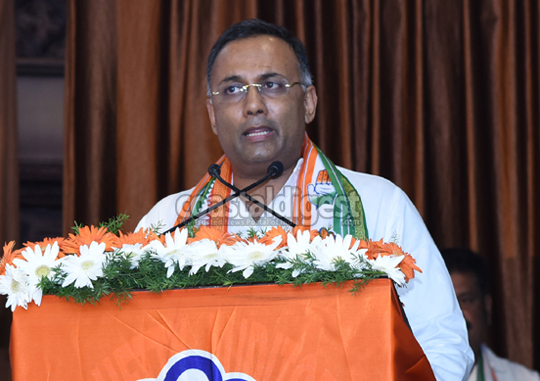
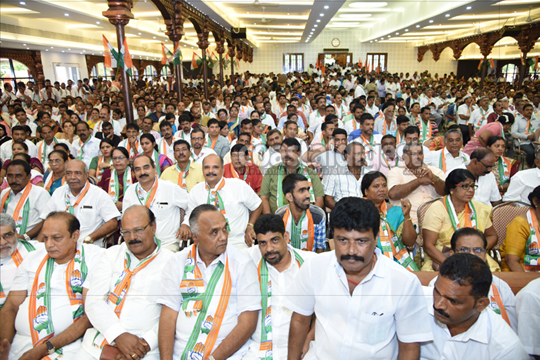
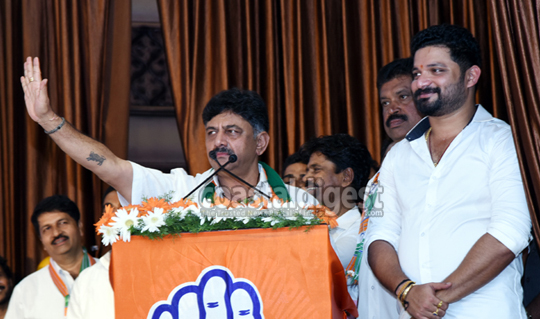
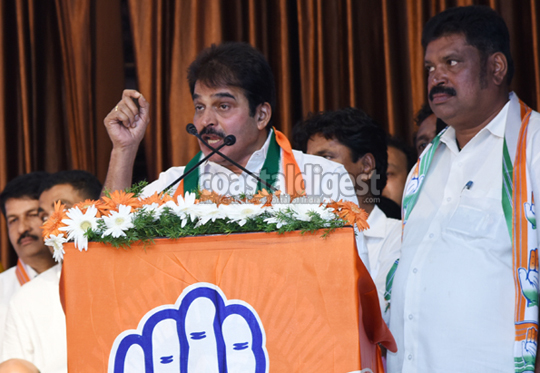
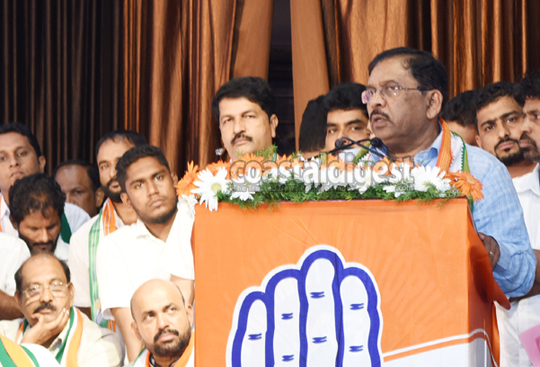
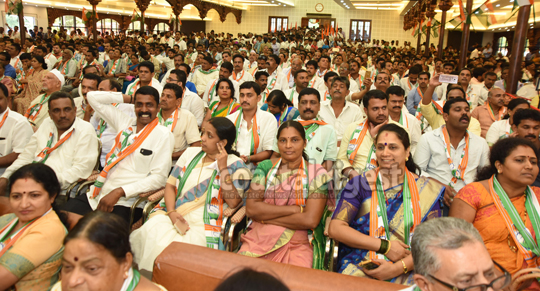
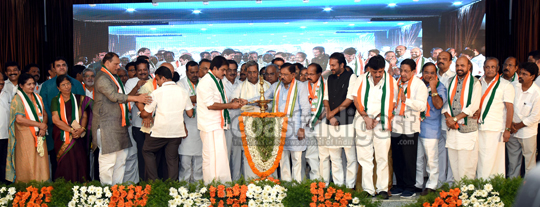
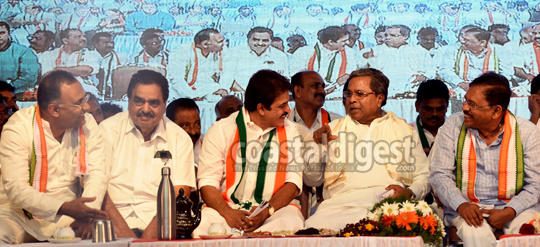
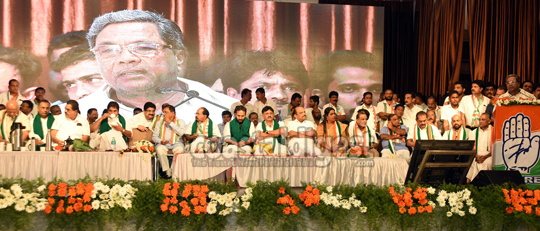
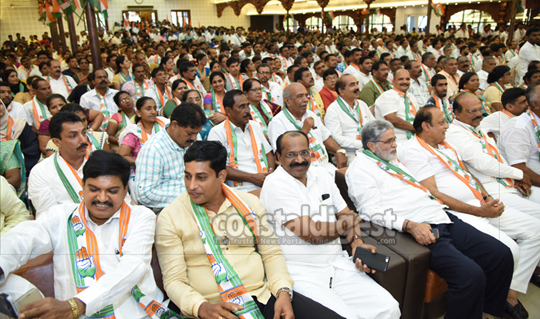





Comments
At last some sensible comment from BJP. Chaddi nahi soch badlo bhkathon!!
Well Said. Appreciated and time to ban so called gau rakshasas
Add new comment